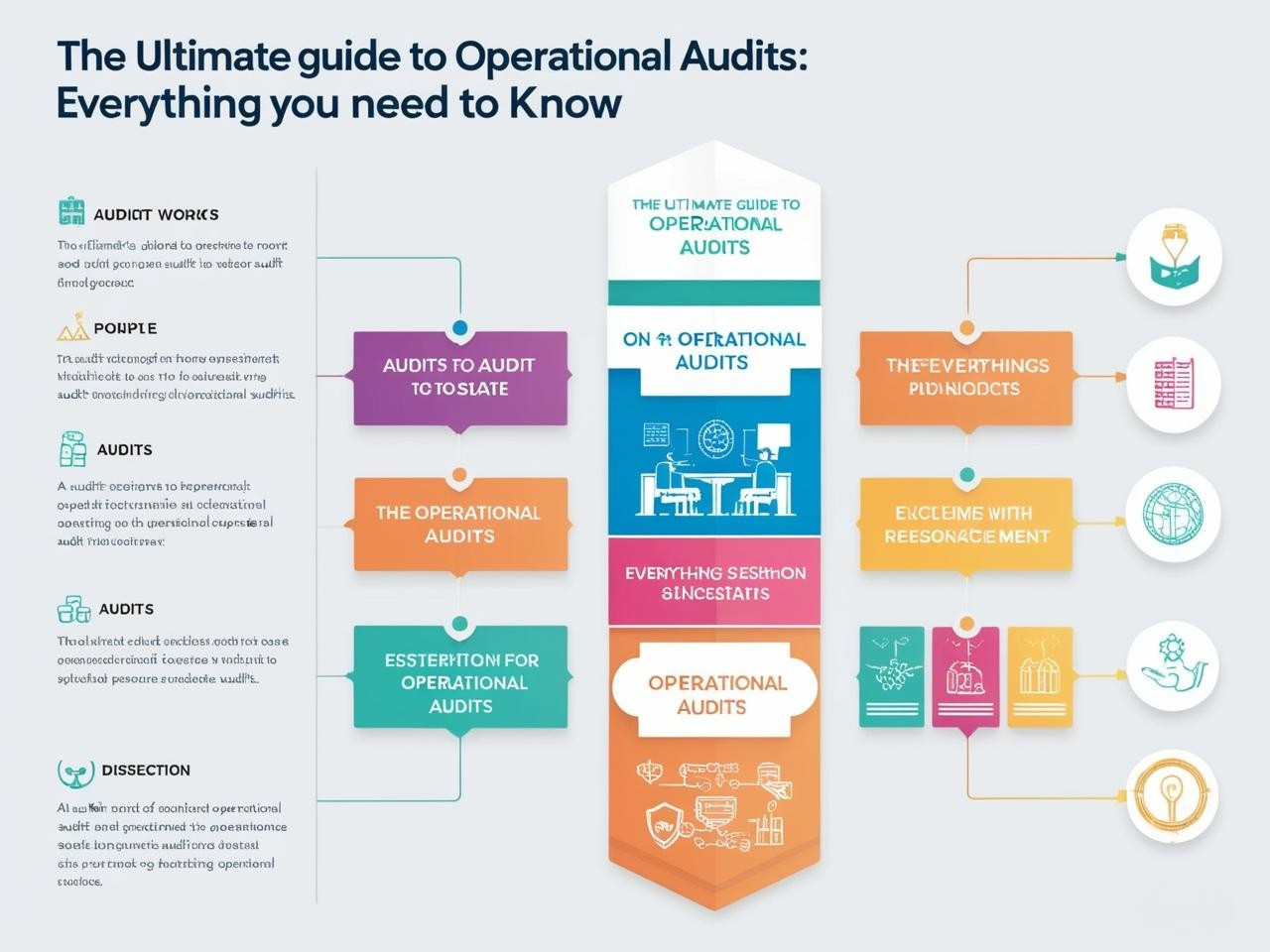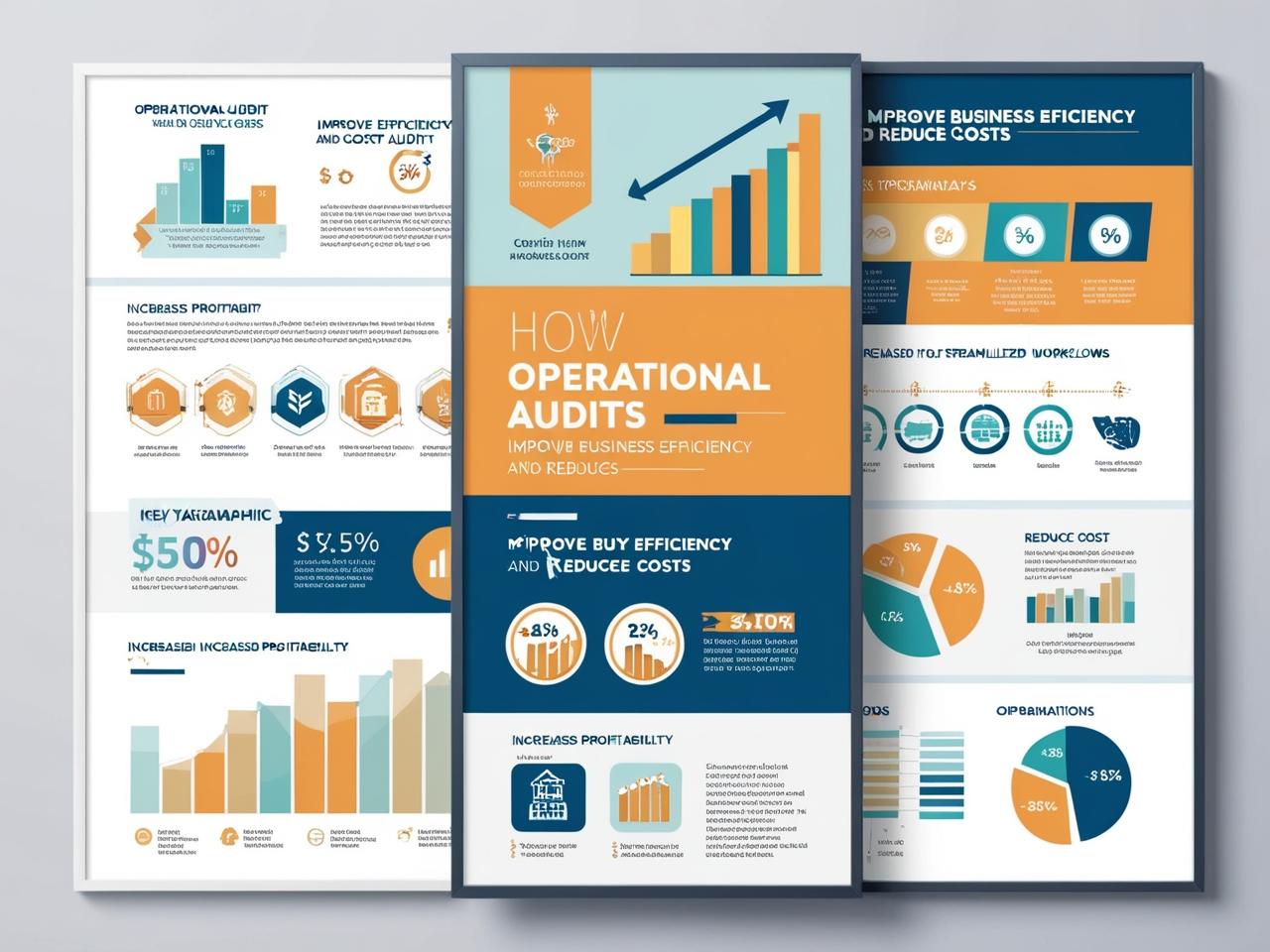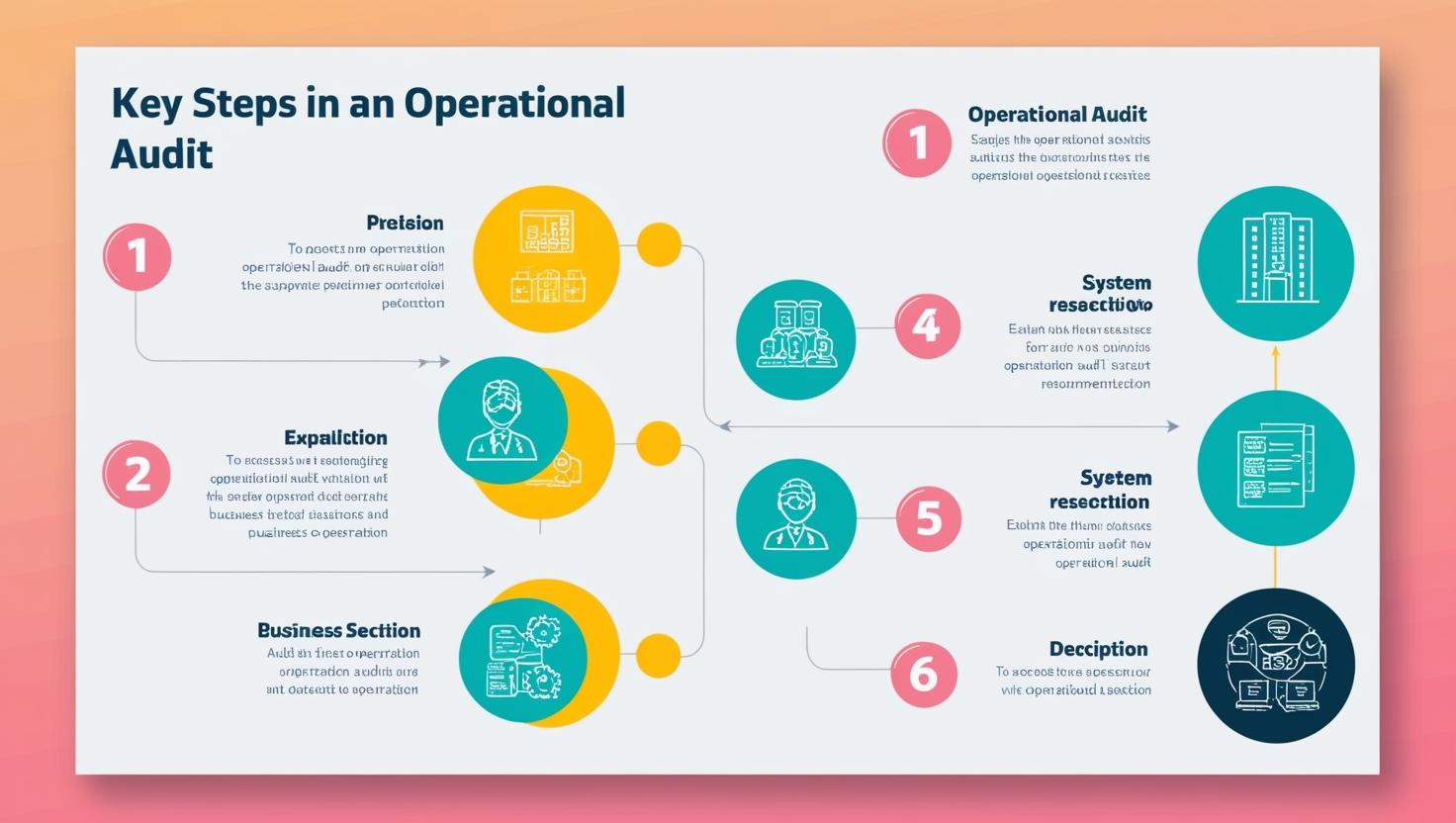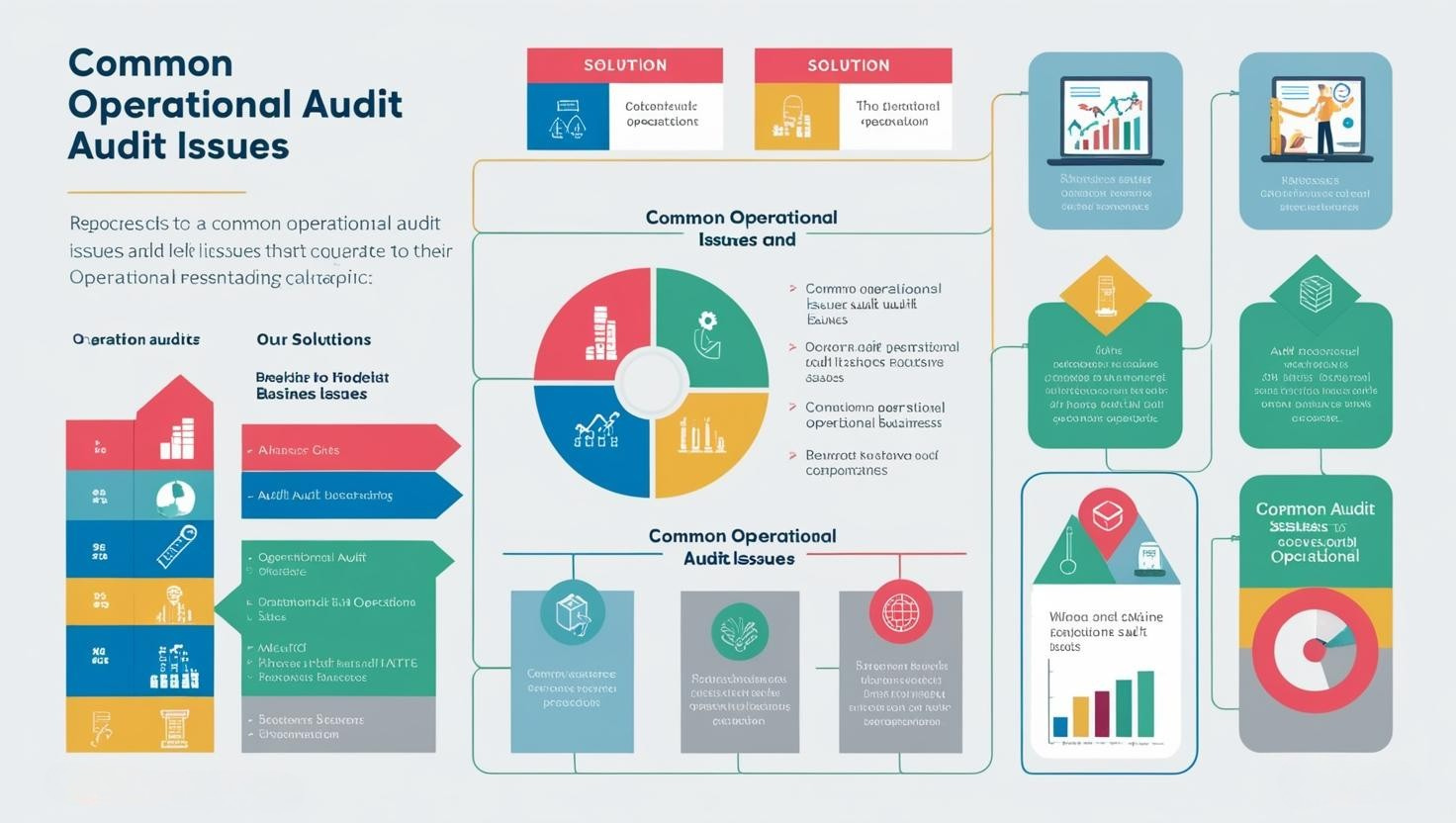 YOUNG AND RIGHT
YOUNG AND RIGHT ACCOUNTING & TAX CONSULTANCY
HomeAudit AssistanceInternal AuditOperational Audit
An Operational Audit is a thorough review of an organization’s internal controls, processes, and systems to assess efficiency, effectiveness, and compliance with strategic objectives. Unlike financial audits, which focus on financial statements, operational audits evaluate how well a company’s operations align with its goals. In Dubai, businesses increasingly turn to reputable audit firms to ensure transparency and regulatory compliance. These firms specialize in examining financial records and providing insights that enhance operational performance, improve financial reporting, and strengthen internal controls.
A comprehensive operational audit examines key aspects such as resource utilization, risk management, adherence to local regulations, and the effectiveness of internal controls. This process helps identify areas for improvement, reduce risks, and optimize operations. Partnering with top audit firms ensures not only compliance with industry standards but also supports long-term financial health and operational efficiency. The insights gained from these audits help businesses streamline processes, minimize bottlenecks, and align internal functions with broader corporate goals, ultimately driving sustainable growth and operational resilience.
Operational audits serve as a tool for improving company's operations. The key purposes include:
Identify bottlenecks and redundancies in processes to improve resource utilization and workflow efficiency. This ensures that resources are allocated effectively, contributing to overall company's financial health and sustainable growth.
Detect financial risks and develop strategies to manage them. Auditors mitigate risks to safeguard assets and ensure long-term stability, following accounting standards and best practices recognized by leading firms in Dubai.
Ensure that operations align with the organization's business objectives. Operational audits play a critical role in aligning strategic goals with day-to-day activities, promoting transparency and accountability across all departments.
Verify adherence to relevant laws and local regulations. Additionally, auditors review whether processes comply with excise tax services requirements, ensuring accurate reporting and reducing legal exposure for businesses operating under strict regulatory frameworks.
Provide actionable insights to enhance employee productivity and overall efficiency. Auditors also review financial records to ensure consistency and accuracy, contributing to transparent reporting practices and greater trust among relevant stakeholders.
Streamline workflows to reduce waste and maximize output. Through regular departmental audits, organizations can identify inefficiencies in specific areas, allowing targeted improvements that contribute to overall productivity.
Proactively identify and address financial risks. Leveraging insights from an audit report, businesses can establish robust controls and ensure long-term resilience against potential financial disruptions.
Uncover opportunities to reduce operational costs. Collaboration with top accounting professionals and leveraging tailored consulting services can help identify areas for sustainable cost reductions without impacting service quality.
Provide management with accurate data to support strategic decisions. Detailed assessments from consulting services ensure that business leaders have reliable information for resource allocation and growth planning.
Ensure compliance with applicable laws following rules and regulations. Regular audits, supported by expertise in bookkeeping services, ensure financial records are accurate and aligned with industry regulations.
Increase productivity through optimized operational processes. Integration of best practices from leading accounting experts helps refine workflows, enhance transparency, and streamline operations for improved business outcomes.
The operational audit process often involves looking at different functions across several departments. This can be complicated, as it requires audit firms to manage complex workflows, large amounts of data, and the connections between departments. Without a clear and organized approach, it can be hard to identify areas for improvement, which might lead to incomplete assessments.
While operational audits focus on process efficiency and effectiveness, they must also align with financial reporting requirements. Gaps in connecting operational findings with financial statements can lead to missed opportunities for improving financial outcomes. Bridging this gap requires auditors to adopt a holistic view of both financial and operational performance.
Operational audits often uncover non-compliance with established operational standards, internal controls, and external regulations. Ensuring alignment with regulatory requirements, as observed in compliance audits, becomes increasingly challenging for organizations operating across jurisdictions. This is particularly evident for audit firms in Dubai, where companies must meet both local and international regulatory standards.
Different industries have unique operational structures and compliance requirements. Audit firms without sector-specific expertise may struggle to provide tailored audit services, potentially missing critical operational inefficiencies or compliance risks. Experienced auditors with in-depth knowledge of industry-specific practices are essential for meaningful operational audit outcomes.
Similar to challenges faced in financial audits, management teams often resist implementing changes recommended by auditors. These recommendations may involve restructuring workflows, reallocating resources, or revising long-standing operational processes. Overcoming this resistance requires effective communication and collaboration between auditors and management.




Emily Johnson
From the first consultation, I was blown away by their approach. They explained everything in simple terms, showed me how their AI system works, and made me feel confident in their abilities. Now, after months of working with them, I can say they’ve exceeded every expectation
Michael Anderson
One thing I truly appreciate is their attention to detail. They don’t just record numbers they actually analyze and give advice that has helped me make smarter financial decisions. The mix of technology and expert guidance is exactly what I needed
Sarah Lee
I’ve been living in Dubai for the last 10 years and working in bookkeeping myself, but I have to say this was an entirely new experience for me. Their team is young, smart, and incredibly talented. From the first meeting, I could see their potential was huge.
David Martinez
I’ve worked with different bookkeeping companies in Dubai, but this team is on another level. Their office is well organized, their systems are seamless, and their professionalism is unmatched. Every time I visit, I feel like I’m dealing with a high end financial firm that truly values its clients
Olivia Brown
I’ve worked with other bookkeeping services in Dubai, but none compare to this one. Their AI integration makes everything seamless, and their customer service is outstanding. I don’t worry about deadlines anymore they take care of everything
James Wilson
I was skeptical at first about AI bookkeeping, but wow… it’s next-level No more manual errors, no more missing invoices. Everything is tracked perfectly. It’s like having a personal finance assistant working 24/7
Don’t miss out – take advantage of our free consultation and take the first step towards achieving your goals